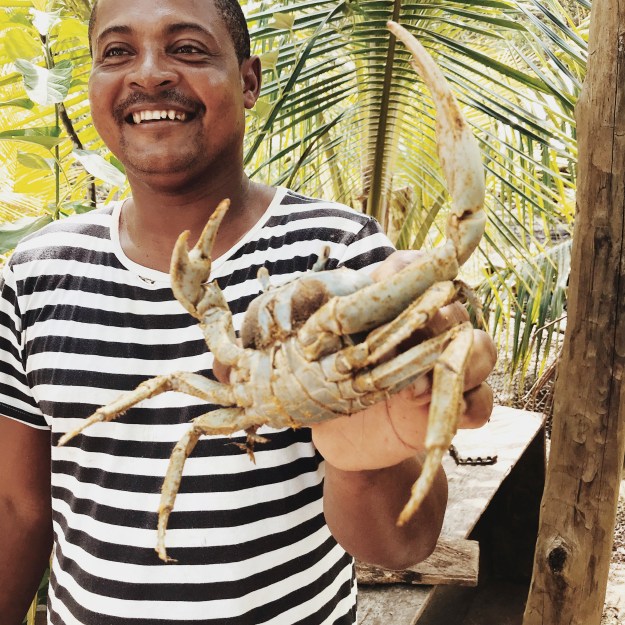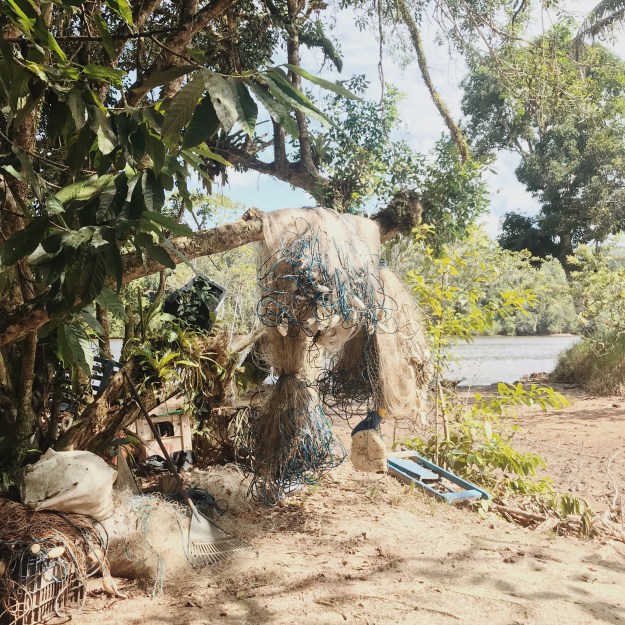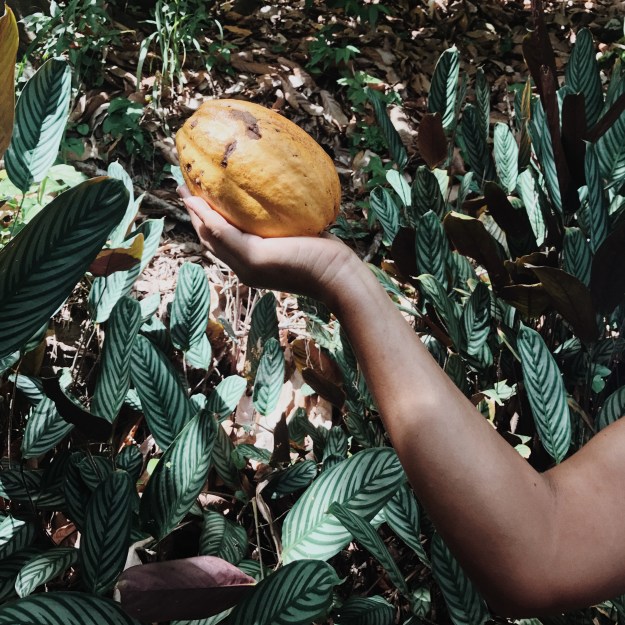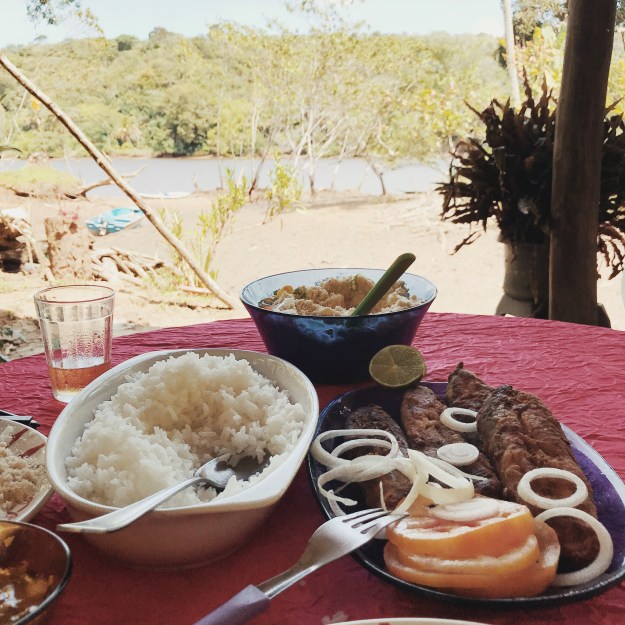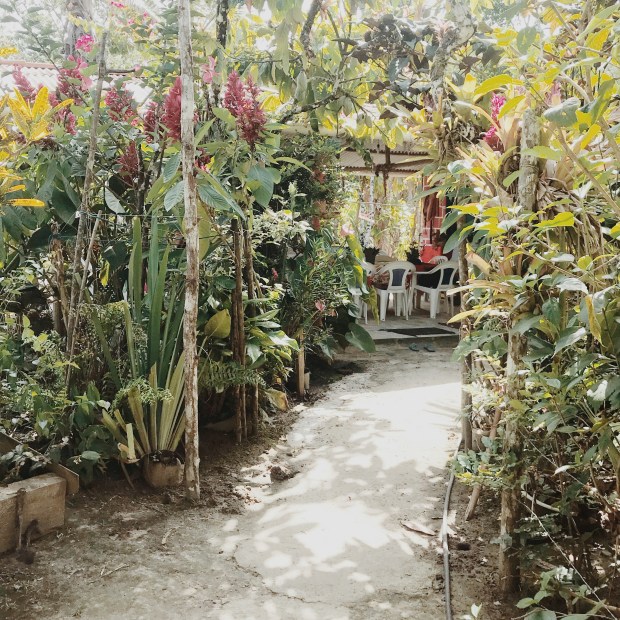Itacaré, on the coast of Brazil’s large state of Bahia, used to be a small village with a simple church, built centuries ago by the Portuguese. But in the late 19th century the cocoa industry brought wealth to the area, now called the Cocoa Coast. The boom also saved this small part of the Atlantic Forest from being chopped down; cocoa likes to grow under the shade of large trees.
Among some of the massive cocoa farms you can still find quilombos, communities created by formerly enslaved people who escaped or were freed. Itacaré was a frequent stop on the slave ships’ route from Africa to Salvador, the state’s capital. There’s a unique energy here, a mix of native people and newcomers, all trying to make a living. Many are tapping into the tourist boom the town is experiencing.
One of them is Zé de Deus, our boat captain, who has an infectious smile. We are traveling from Orla, where the Atlantic Ocean meets the Rio de Contas. It is 9 in the morning and the scenery is magnificent: turquoise and green, the river, sky, and forest blending together. From time to time we see a fisherman balancing on a tiny boat, dropping his net skillfully.
In the mangrove, the tide is down. The roots of the trees are full of strange, stone-shaped mushrooms. Armed with a knife, Captain Zé plucks one and hands it to us. It’s an oyster! He hands us another oyster and another, and we eat them right there, no lemon needed. We begin to understand why he smiles all the time.
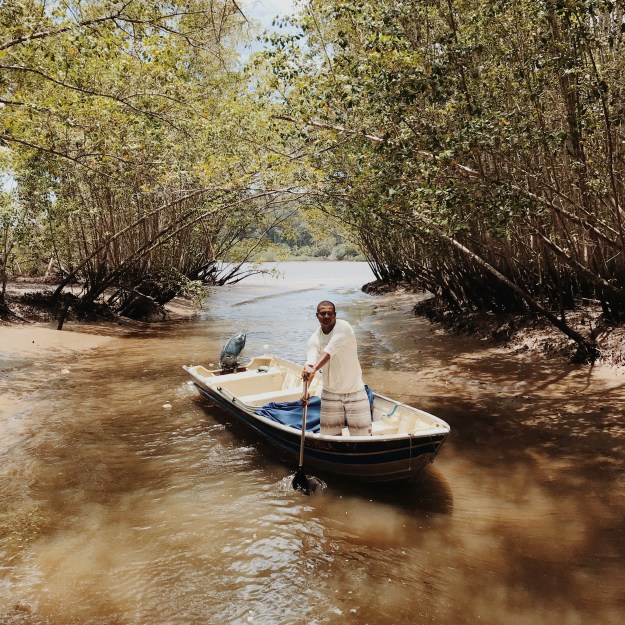
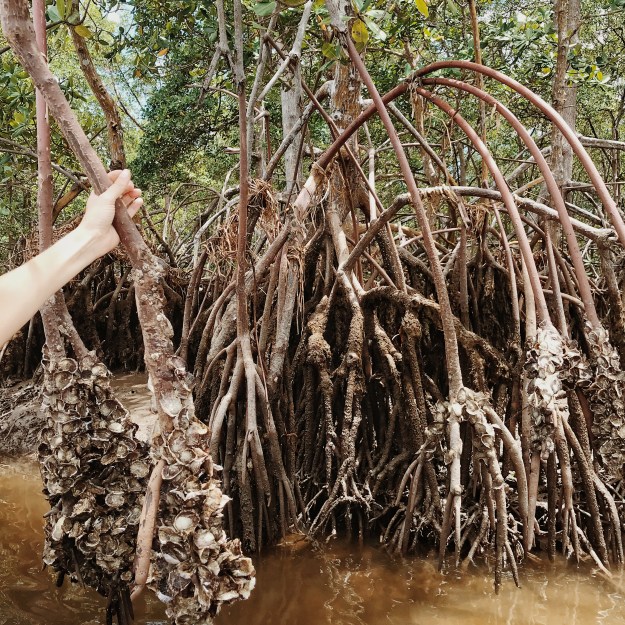
Upstream we go. A little house here, a little house there. A failed restaurant here, a failed guesthouse there. Suddenly, seemingly in the middle of nowhere, the boat slows down and approaches the shore. Now I see there’s a small wooden house among the trees. Zé jumps off and pulls the boat with a rope that he attaches to a tree. We follow, our sandals sticking in the mud until they break. No problem—we’ll keep walking barefoot.
We walk through a garden of flowers, torch gingers so red they look like plastic. Birds and more birds sing and talk. At the end of the green path we meet Isadora Soledade, who takes care of the plants, and Miguel, her husband of 50 years who shares the same name.
“Good morning, Zé! Welcome to our home, friend” Miguel says.
We all sit on the white plastic chairs in the terrace.
“A beer?” Miguel asks.
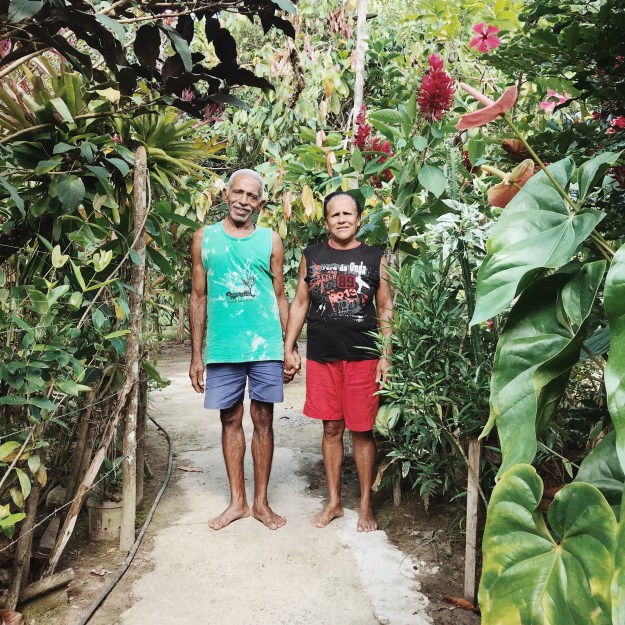
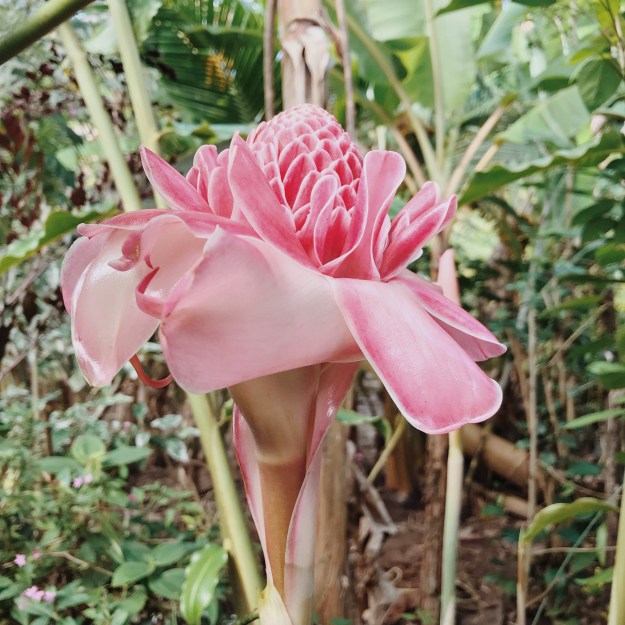
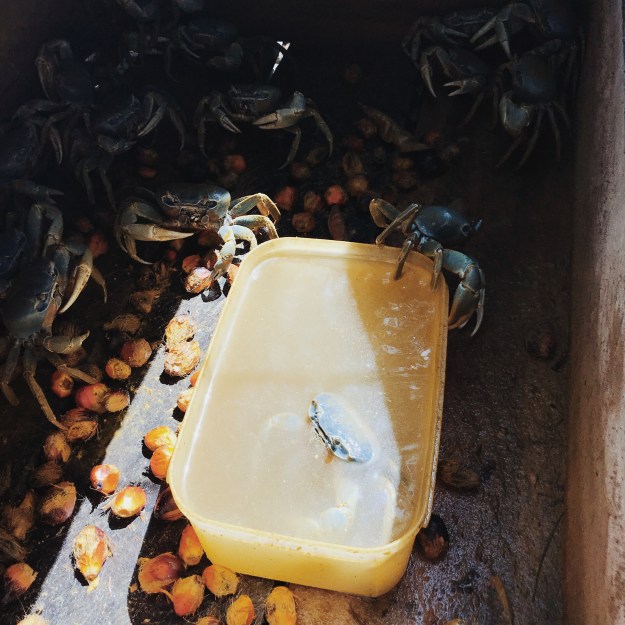
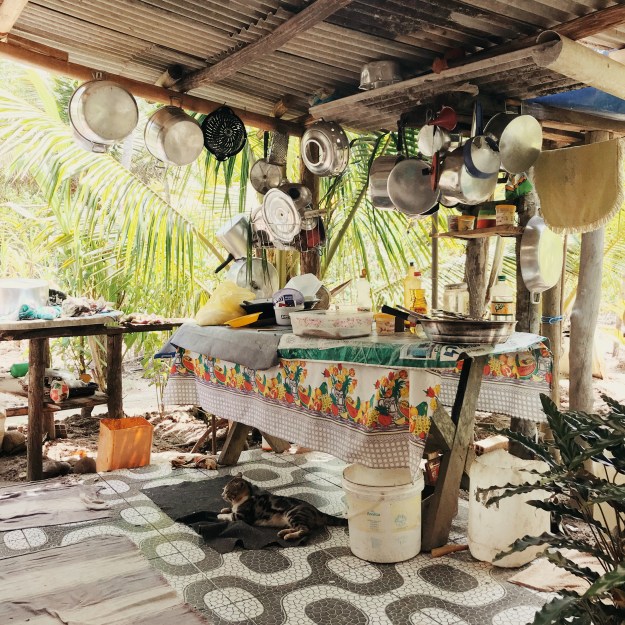
Fish is the house specialty, as well as chicken from the backyard. Miguel tells me one dish is enough for two, which slightly worries me. That probably means it’s OK for four. And with that, the cooking begins.
Everything Miguel and Isadora cook comes from right here; they are too far from even the closest shop to buy groceries regularly. Isadora worked in restaurants in the region for about 15 years until one day, five years ago, she and Miguel decided to start their own. Today their restaurant, Miadora is a favorite of locals and tourists alike—and a stop for celebrities as well. Last week, they tell us, an entire soccer team came for lunch.
Miguel and Isadora received this piece of land as payment for Miguel’s many years of work on a farm. He was a caseiro, a caretaker in charge of everything from cutting the grass, feeding the animals, and collecting the fruits to making small repairs and making sure nobody stole or settled on the land. After years of unpaid work, Miguel received a small piece of land, thanks to a judge’s intervention. In Brazil, modern slavery is very common. On many fazendas (plantations) workers receive only a bed and breakfast in return for their hours of daily labor.
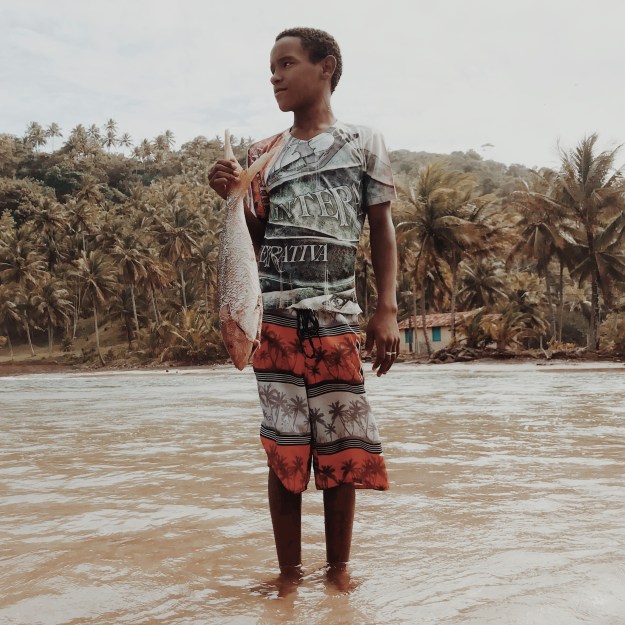
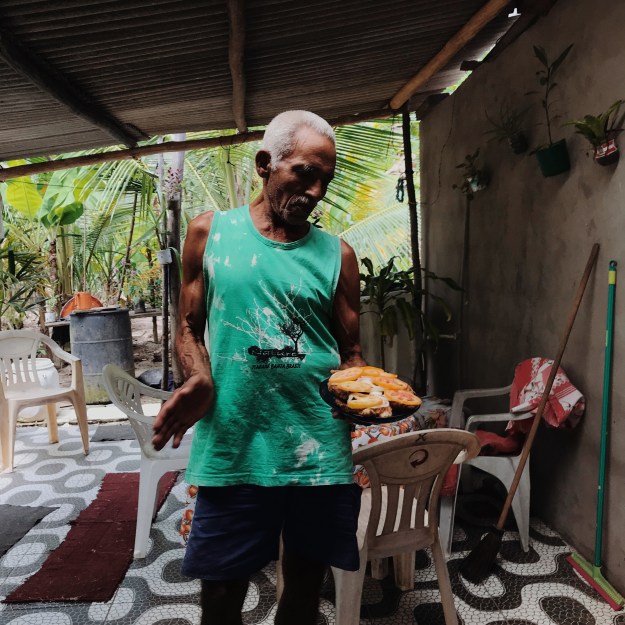
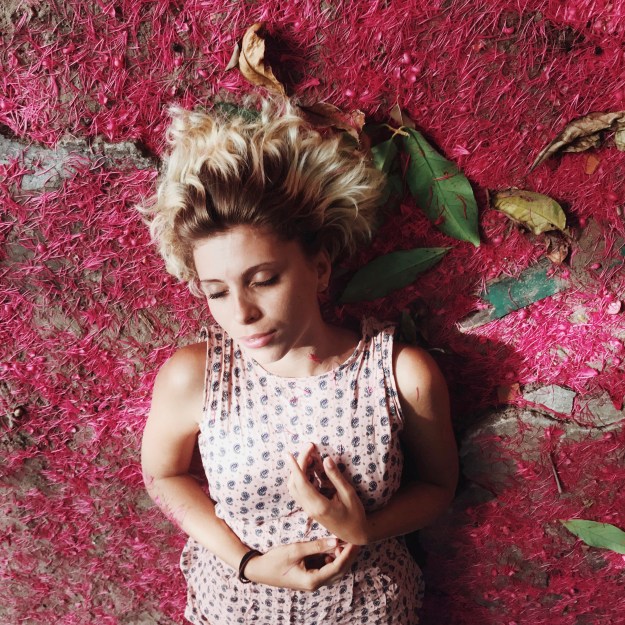
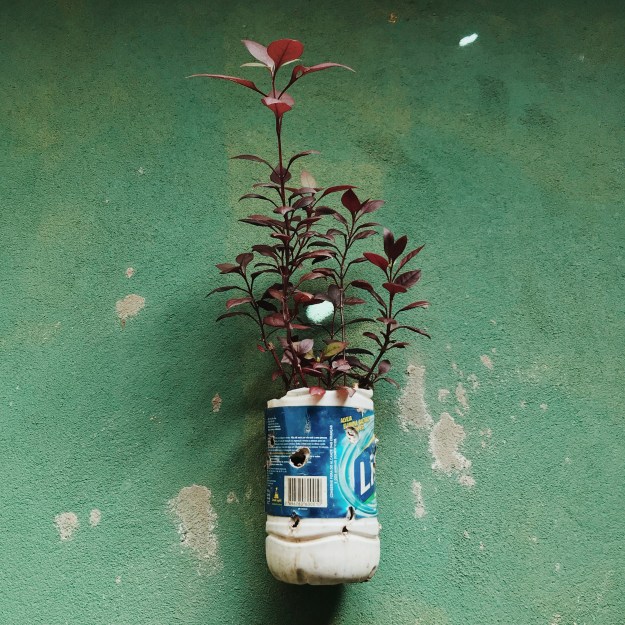
As Isadora cooks the fish, Miguel takes us for a walk in the backyard to show us the plants. “This is mango, this is cupuaçu, pitanga, acerola, careful … abacaxi,” says Miguel, referring to the sharp leaves on the pineapple. “Sugarcane,” he continues, “mandioca, kobe, peppers. Here’s jambo. … It’s delicious.” At this time of the year the jambo tree drops a rain of tiny pink leaves. The entire forest floor is full of it. It’s the first time I’ve seen anything like it.
So here we are in Miadora. A contraction of Miguel and Isadora’s name that sounds like mi adora (my love). A quiet corner in the middle of the forest, where food comes from everywhere around us. And yes, a dish for two is a dish for four. We eat, we drink, we watch the river, we hear the birds. Miguel and Isadora sit on a sofa on the terrace, and they watch the river too.
“It was delicious,” I say, knowing my words don’t do it justice.
“I know,” replies Miguel.
